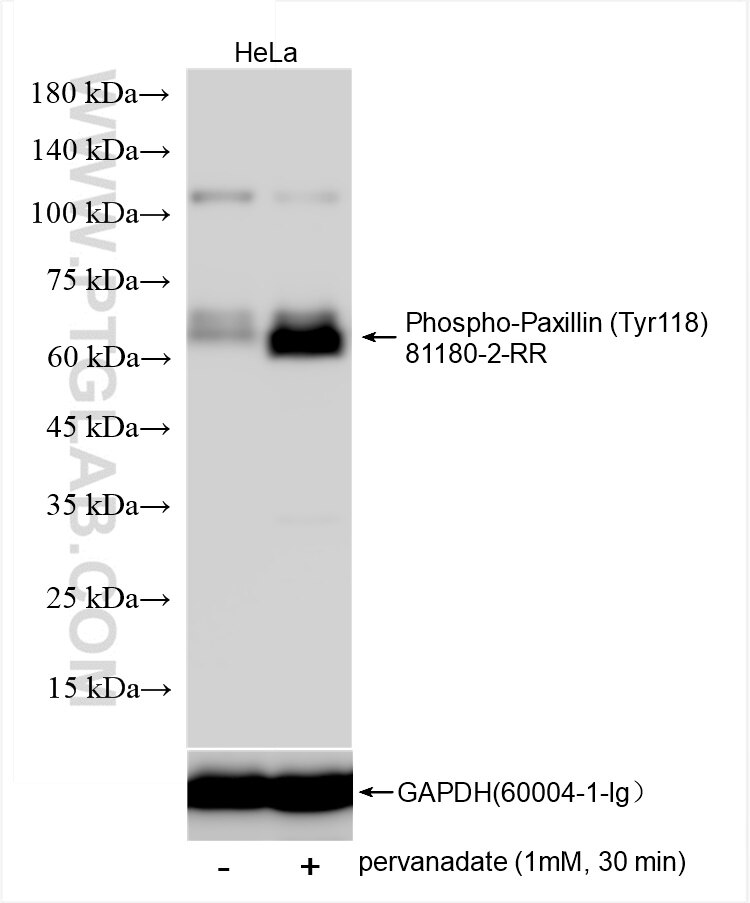Validation Data Gallery
Tested Applications
| Positive WB detected in | pervanadate treated HeLa cells |
Recommended dilution
| Application | Dilution |
|---|---|
| Western Blot (WB) | WB : 1:2000-1:10000 |
| It is recommended that this reagent should be titrated in each testing system to obtain optimal results. | |
| Sample-dependent, Check data in validation data gallery. | |
Product Information
81180-2-RR targets Phospho-Paxillin (Tyr118) in WB, ELISA applications and shows reactivity with human samples.
| Tested Reactivity | human |
| Host / Isotype | Rabbit / IgG |
| Class | Recombinant |
| Type | Antibody |
| Immunogen | Peptide 相同性解析による交差性が予測される生物種 |
| Full Name | paxillin |
| Calculated molecular weight | 591 aa, 65 kDa |
| Observed molecular weight | 68 kDa |
| GenBank accession number | BC136787 |
| Gene Symbol | Paxillin |
| Gene ID (NCBI) | 5829 |
| RRID | AB_3670493 |
| Conjugate | Unconjugated |
| Form | Liquid |
| Purification Method | Protein A purfication |
| UNIPROT ID | P49023 |
| Storage Buffer | PBS with 0.02% sodium azide and 50% glycerol , pH 7.3 |
| Storage Conditions | Store at -20°C. Stable for one year after shipment. Aliquoting is unnecessary for -20oC storage. |
Background Information
Paxillin (p68-kD) is one of the integrin assembly proteins and can interact directly with several integrin assembly proteins, including vinculin, talin, β1 integrin, focal adhesion kinase (FAK), c-Src and Csk. Integrin-mediated tyrosine phosphorylation also enables paxillin to interact with various signaling molecules: tyrosine residues (Y) 31 and 118 being especially predominant targets of phosphorylation by kinases and creating binding sites for the SH2 domain of adaptor protein Crk. Thus, paxillin plays apivotal role in cell adhesion, migration and further oncogenic transformation. (PMID: 11774284)
Protocols
| Product Specific Protocols | |
|---|---|
| WB protocol for Phospho-Paxillin (Tyr118) antibody 81180-2-RR | Download protocol |
| Standard Protocols | |
|---|---|
| Click here to view our Standard Protocols |
